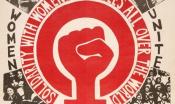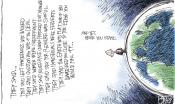text
Multimedia
Religious Discrimination for Learning and Development Training
In this video, Seema meets with her employer, Ms. Tate, who is happy to tell Seema about a promotion. However, Ms. Tate says that to be considered for the position, Seema must stop wearing her hijab. Seema refuses, saying her religion is important to her and that she can do the job without showing her hair.
July 2, 2014




